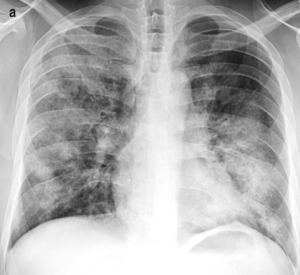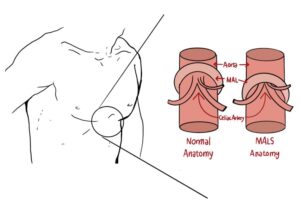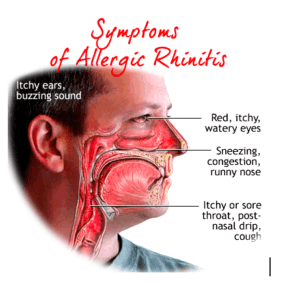I have a headache, what should I do? It is a very common question in a doctor’s life. It is a simple question but the answer to this is complex. Everybody experiences headaches at some point in their life. The cause behind this headache can be a very simple one e.g. lack of sleep or a very complex one e.g. brain tumor. So, first thing first, you have to know about the red flags of headaches. If you have any red flags then immediately seek medical attention.
- Headache associated with loss of consciousness
- Headache + loss of vision
- Headache with fever or stiff neck
- Sudden onset very severe headache
- Headache with fits
- Headache associated with weight loss
- Pattern change of previous episodes of headache
- New-onset headache after 50 years of age
- Headache with loss of muscle power in any parts of the body or sensory abnormality or psychiatric abnormality
Causes of headache
Now let us assume, you don’t have any red flags of headache. Headache doesn’t always happen due to problems in your brain. Problems outside your brain may also cause headaches, for example, sinusitis. Therefore, all headache patients will not be treated by neurologists. Here are some common causes of headache:
- Tension type headache
- Migraine headache
- Cluster headache
- Sinusitis
- Meningitis
- Subarachnoid hemorrhage
- Glaucoma
- Ear infection
- Head trauma
- Carbon monoxide poisoning
- Smoking
- Substance abuse and withdrawal (e.g. alcohol withdrawal)
- Insomnia
- Fibromyalgia

Tension type headache
The characteristics of tension-type headache is a diffuse moderate pain all around your head that feels like a tight band is constricting your head from all directions. It is the commonest type of headache and its causes are poorly understood. But certain factors (triggers) are associated with tension-type headaches. These are:
- Lack of sleep
- Stress
- Eyestrain
- Decreased water intake
- Certain foods like caffeinated beverages, chocolate, etc.
- Hunger
- Anxiety
- Depression
- Low iron level in blood
- Poor posture
Tension-type headache can also cause:
- Irritability
- Tiredness
- Memory impairment
- Trouble concentrating
- Nausea
I have a headache (tension type), how can I treat it?
First of all, if you know any triggers of tension type headache then try to avoid it. Lead a healthy lifestyle by
- Healthy and balanced diet.
- Exercising daily (at least 30 minutes of walking per day).
- Maintaining good posture.
- Meditation or yoga to reduce stress.
- Drinking plenty of water.
- Your eye problem or ear problem if you have any.
You can also take over-the-counter medications e.g. paracetamol, aspirin, ibuprofen, naproxen, etc.
If these medications don’t help you then visit your doctor to get some prescription medications:
- Ketorolac
- Indomethacin
- Opioids
- Tricyclic anti-depressants
- Selective serotonin reuptake inhibitors
- Acupuncture
- Massage therapy
- Biofeedback
- Cognitive behavioral therapy
Migraine headache
It is a severe type of headache characterized by throbbing pain over one side of the head. Common symptoms of migraine headache are
- One-sided pulsatile headache
- Nausea/ vomiting
- Vomiting
- Extreme sensitivity to noise and light
- Eye-watering and redness
A migraine headache can also be preceded by an aura (also called classical migraine). An aura is a sensory disturbance where you can see zig-zag lines, light flashes, or dots in your vision. You can also have a tingling or funny sensation over your tummy, hands, and feet.
Migraine may present in various ways, for some women migraine headache occurs during menstruation only (menstrual migraine). Rarely migraines may also cause weakness over one side of your body, slurred speech, and difficulty swallowing.
If you are having the symptoms of migraine headache please visit your doctor. Your doctor may give you a CT scan of head just to exclude other grave causes of headaches.
Migraine triggers
Common triggers of migraine headache are:
- Loud sound
- Bright light
- Foods e.g. chocolate, sugary food, chocolate, ice cream, lemon
- Alcoholic beverages
- Cigarette smoking
- Vinegar
- Processed meat
- Insomnia
I have a headache (migraine), how can I treat it?
Do the following lifestyle changes:
- Avoid the known triggers
- Have some relaxation by doing yoga or meditation
- Do regular physical exercise
- Paracetamol
- Aspirin
- Ibuprofen
- Naproxen
- Beta-blockers e.g. propranolol
- TCA e.g. amitryptylline
- Ergots e.g. Bromocriptine
- Opioids e.g. codeine
- Anticonvulsants
Some different types of therapy can also help you if your doctor permits it:
- Transcutaneous supraorbital nerve stimulation (t-SNS)
- Learning to cope (LTC)
- Acupuncture
EndNote
Headache once in a while may not be unusual. But you are having regular headaches then it’s time to visit the GP. Your GP will refer you to the relevant specialist. If you have sinus infection then your headache may be treated by ENT specialists instead of neurologists.



